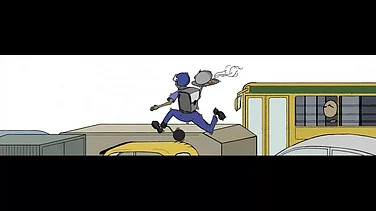Fear is a powerful and primal human emotion. As women, we learn to live with it - every day. We have been conditioned to watch our backs. In crowded markets, on empty buses, in college, at work, in cabs and on train stations, while walking the streets in the night, and while walking the streets in the day - we are always aware. In our country, every 20 minutes, a girl is raped.
This is the official statistics by the National Crime Records Bureau (NCRB). Over 33,000 rape cases were registered in 2017, but there are so many more. Thousands of cases are stuck in courts, thousands of voices are unheard, thousands of perpetrators walk free. I may not be able to explain this to a man, but ask any women you know - we have an inbuilt mechanism that makes us walk faster when its dark, take a longer route because it’s safer, hold on to our handbags, text friends and use location-sharing apps, we don’t make eye contact, we often censor our speech and our clothes and are generally careful and a little uneasy.
Advertisement
Violence against women is a universal reality, one that cuts through class, culture, geographies and communities. We are numbed through centuries of acceptance. And yet every now and then a case will shock us out of complacency. Nirbhaya, the little girl in Kathua, the Unnao survivor, the helpless children in Bihar homeless shelters, and now the 27-year-old veterinarian in Hyderabad.
The details are terrifying simply because we can identify so easily with her. Stranded in the middle of a busy highway in the night with a punctured tyre - could happen to anyone. Her mobile was switched off at 9:40 pm, while apathetic police fought over jurisdiction. Her body, brutalised and burnt was found the next morning under a bridge.
Advertisement
The ferocity of the attack, the sheer savagery and the fact that it could happen in an urban setting, surrounded by people, with hundreds of cars whizzing by, is truly frightening. We empathise with her, as we know it could have been any of us. Millions of women are groped, teased, leered, assaulted and violated every day as they step out of their homes, and for many amongst us, even home is not safe. Which is why, perhaps, when cases like this happen, there is an outpouring of grief and anger. We are reminded of our helplessness, and the simple fact, that we are not safe.
And so, once again, hundreds of protesters are out on the streets, holding placards demanding justice. Hashtags are trending on social media, the police had to lathi-charge a group of angry demonstrators chanting slogans in front of the police station, lawyers are holding candlelight vigils, and students and activists are demanding death penalty for the accused.
The case made it to Parliament, with angry legislatures demanding the men be lynched, castrated and that the laws be stricter. Because of the public attention, the police have finally swung into action, suspending the three officers who delayed the filing of the complaint, and the Chief Minister himself has asked the case to be fast-tracked for speedy justice. But that won’t solve the problem. She is not the only one. What about others awaiting justice, and what about the future - will it happen again, and again?
Advertisement
It is not enough to vent our feelings by tweeting, re-tweeting, drawing posters, lighting candles and standing in solidarity with the girl in Hyderabad. Our collective conscience wakes up from time to time, but how do we sustain this emotional outburst and channelise it into something more concrete. How do we change the culture of stigma and silence that accompanies rape? Will there ever come a time when we can approach a police officer without fear and trepidation? Can we trust them to do their job effectively and with empathy? How can the government be pressured into action?
Advertisement
To get attention, we must be heard, not sporadically, but consistently. Only when we voice our anger regularly, will it become an election issue. Knee-jerk reactions like ‘hang the rapists’ is not a long-term solution. The age-old patriarchal mindset must change, and that change must begin at home, with mothers telling their boys what is acceptable and what is not. Daughters must be raised with dignity and courage. The government must take steps to ensure the cities and towns are safe, that survivors are rehabilitated, the perpetrators are punished, and the police is doing what they are supposed to do. Only then perhaps there will be hope.
Advertisement
With pride, we tell the world, that for all its imperfections, India is a democracy. But are we truly free, when half of us live in fear?
(Ekta Kumar is a writer, columnist, artist and works closely with the European Union on gender and civil rights-related issues. Views expressed are her own.)




















